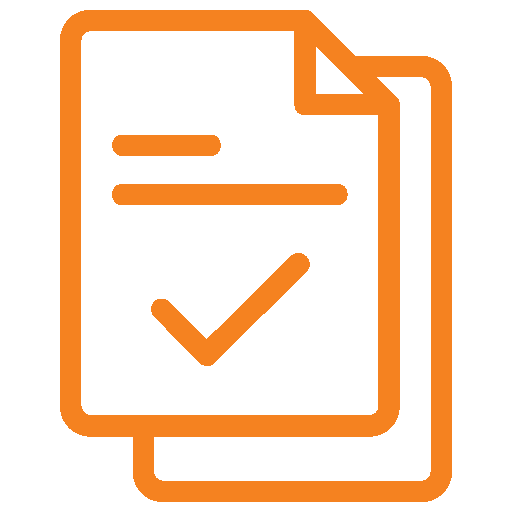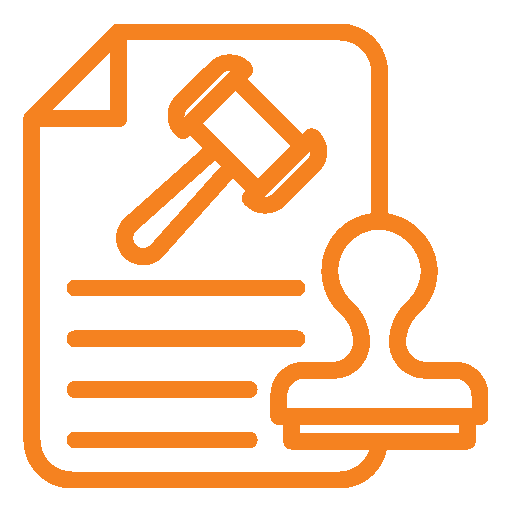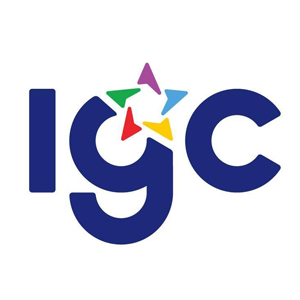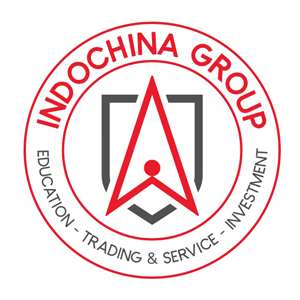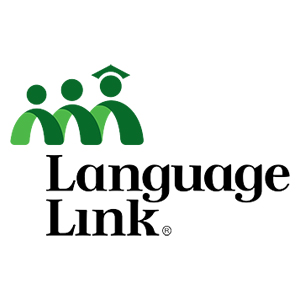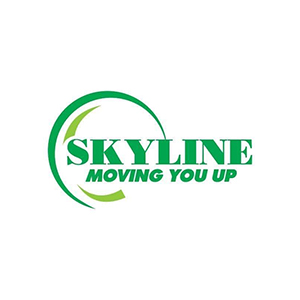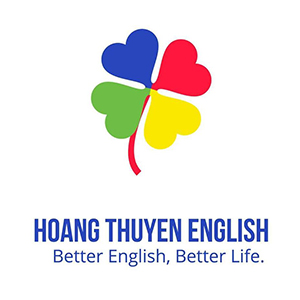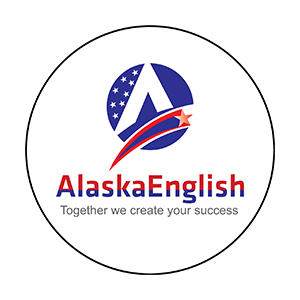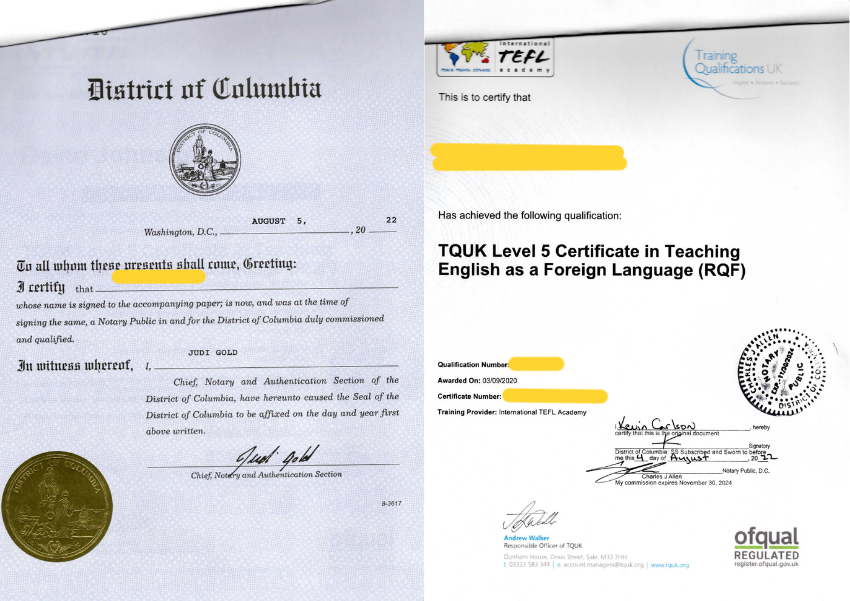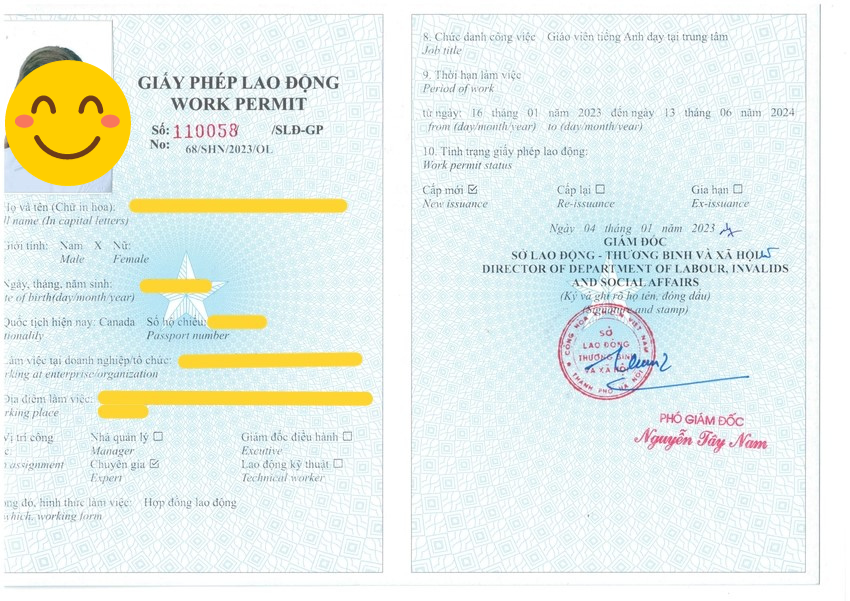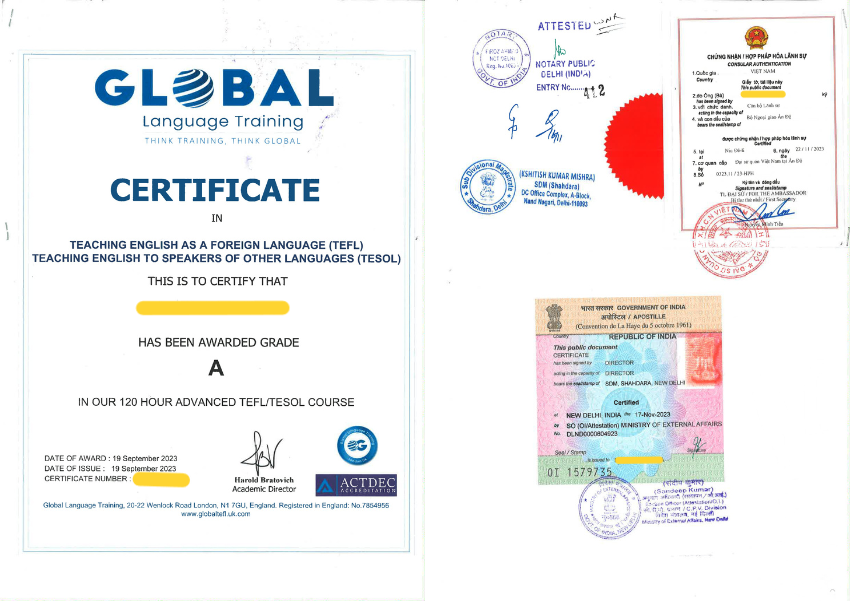Visa, TRC & Work Permit Consultation
HOW WE HELP CLIENTS
Following Steps Apply Online
STEP 1
Send a request form
Fill out the simple form with secure information. Consulting and quotation on a case-by-case basis.
STEP 2
Send documents to us
Prepare & organize documents, then send us to proceed to the next steps.
STEP 3
Confirm the service
Confirm our service via email officially & make a payment. On behalf of the Customer, VTJ will submit documents at the competent authority.
STEP 4
Get the results
After submitting, you will get the results in a few days.
Why choose prestige vietnam visa & documents service?
Immigration rules are tricky and complicated, changing frequently.
It is also difficult to deal with the immigration department and you need to increase the success rate in applying documents
VTJ's skilled staff will assist you with the maximum processing of your documents. With VTJ's long experience, we are committed to being able to assist you in achieving favorable, fast, and accurate results.
- Time saving
- Quick and simple process
- Free consultation and support 24/7
- Simple procedures and processes
- Commitment to 100% personal information security
- Able to track and receive the results on time
20
+Visa Categories
500
+Successful Cases
99
%Success Rate
10
+Pro Consultants
What services do we offer?
In addition to the Vietnam visa on arrival, we are also the leading experts in work permit, legalization, temporary residence card, OEC for Filipino and police check.
| No. | Type of service | Details | Processing time |
|---|---|---|---|
| 1 | Vietnam Visa | Including: E-visa / Entry visa: Tourist Visa / Business Visa/ Renew Visa / Work Visa/ Family Visa | 2 - 7 working days |
| 2 | Work Permit (WP) |
|
15 - 45 working days |
| 3 | Legalization | Translation, notarization, an Apostille or legalization by the country issued & VN embassy | From 7 working days |
| 4 | Temporary Residence Card (TRC) | A TRC is issued by the immigration agency under the Ministry of Public Security, and is valid from one to ten years, depending on the visa type | 15 - 30 days |
| 5 | OEC for Filipino |
|
20 - 45 working days |
| 6 | Police check | Police check ( or Non-criminal record) for Work permit application | 7 working days |
| 7 | Pick-up service |
|
Based on request |
| 8 | Flight ticket | VTJ supports booking based on demand | |
| 9 | Accommodation | VTJ supports finding | |
| 10 | Inbound Tour | VTJ supports booking based on demand |
Our Current and Past Clients
Our Previous Cases
Customer Reviews
-
 Kai Ros
Kai Ros





I was in the care of Hailey and she offered great assistance all throughout processing the documents needed for me to apply a VISA back in the Philippines. There were some issues when my company tried renewing my TRC and can't do such given that I was outside the country already for holiday. Good thing they hired a reliable assistant, Hailey, who helped me apply and process both NA2 Form and Approval Letter. What's more fascinating and totally satisfying was the duration she has finished both documents in just a span of 2 days (which normally takes a week or so). Really grateful for her assistance and now I am back to Vietnam and ready to start the new school year. I highly recommend her/their service! Kudos!
VISA Application Assistance
-
BMBill McG





I have been using VTJ for a few years since my arrival in Vietnam. They have always been very good with quality teaching jobs postings. With the pandemic, I was surprised to be contacted by Sophie one of their recruiting specialists. She had a job suggestion for me and asked me to submit my documents for consideration. I ended up getting the job with a training center that is offering online training for now. Sophie was very professional and supportive throughout the application process. And still contacts me today to check in. I would highly recommend Vietnam Teaching Jobs for both their quality job posts and the professional recruiting services and people like Sophie.
I have been using VTJ for a few years…
-
 AURALYN BALITON
AURALYN BALITON





I would like to express my gratitude for the outstanding support I have been receiving. It has been a wonderful four-month working experience with Ms DAISY, and counting. She stayed in touch with me from my home country until I got here, and was always readily available to answer my queries. She is so professional and friendly that she even gave me advice when I was about to quit. Up until now, she has never ceased asking how I am doing and whether everything is going well at my current job. For sure she has lots of expat clients, but believe me when I say she is so detail-oriented that she knows every detail in someone’s application very well. Thank you so much, Ms. Daisy! More power!
Can’t thank you enough, Ms. Daisy!🥰
-
JJohn Russell





My recruiter Ms. Huyền Trần was so kind to me the whole process of helping me find a job in Vietnam. I'm very thankful how patient she was with me and gave me a lot of support to find the job. She gave tons of advice for the interview and helped me with some forms for my job. Without her I probably would not have gotten this job.
helped me get a job
-
 Joel Hadley Jr
Joel Hadley Jr





I am in the process of moving to Vietnam now, and I can see that Sophie, one of the recruiters, has been an absolutely great help in this process! She is kind, very helpful, and has been very responsive when it comes to any questions that I have about the move. The interviews for schools were smooth, and we got a contract signed within just a few days.
Moving To Teach In Vietnam
-
ELErica Latif





I have contacted Vietnam Teaching Jobs to see if they can maybe find me a part-time teaching job during this heavy lockdown here in Vietnam since beginning of June 2021 until now. Jessi contacted me and connected me with a centre in Hanoi and I have been teaching for a really great lady in Hanoi until now. Jessi has also been super helpful and caring about me. I will really recommend this company for help during this trying time in our lives.
Looking for part-time ESL teaching jobs
-
FEFrans Erasmus





Vietnam teaching jobs have been absolutely amazing with helping me finding what is right for me. Many other agencies just want to push out the numbers, but the team at Vietnam teaching jobs are dedicated to getting the best fit for you. I got in touch with Vietnam teaching jobs when I was looking to move into something a bit more “me” and they heard me fully, Jessi set me up with a job I’ve now been in for two weeks and absolutely love with an incredible company. They are always extremely helpful and go above and beyond in assisting you in finding you the right position. I highly recommend them, their staff are all very friendly and know exactly what they’re talking about.
Amazing service!
-
ASaran senojak





My experience with VTJ has been excellent and in particular, i have found the services provided by Ms Jessi, to be highly professional. Ms Jessi’s communication is open and consistent and her “can do” approach has been most appreciated. I highly recommend VTJ to all Expats coming to Vietnam.
My experience with VTJ
Our News & Blog
Latest News & Articles From the Blog
Frequently Asked Questions
1. Visa
-
Can I fly to Vietnam without a visa?
Yes, if you’re from one of 25 specific countries or are visiting certain coastal economic zones, you can fly to Vietnam without a visa. APEC Business Travel Card (ABTC) holders can stay for up to 60 days without a visa as well.
-
What is the simplest way to get a visa to Vietnam?
The simplest way is to apply through a reputable visa service that can assist you in obtaining the necessary documents and guide you through the application process.
-
What happens if you overstay your Vietnam visa?
If you overstay your Vietnam visa, you may be subject to penalties, fines, or other legal consequences. It is important to adhere to the visa regulations and leave the country before your visa expires.
-
Can I use a tourist visa to do my short-term business work?
A tourist visa is intended for leisure and tourism purposes. Using it for short-term business work may not be permitted. Consider applying for a business visa if you plan to engage in work-related activities in Vietnam.
2. Work Permit
-
Is a college/university degree necessary for a Vietnam work permit?
In many cases, a college/university degree is necessary for a Vietnam work permit, especially if it is a requirement for the job position you are applying for. However, there may be exceptions for certain technical or expert roles.
NOT SURE WHAT YOU NEED?
CONTACT US NOW
Call Now

Vietnam Teaching Jobs is rated excellent on Trustpilot: Read all review »






